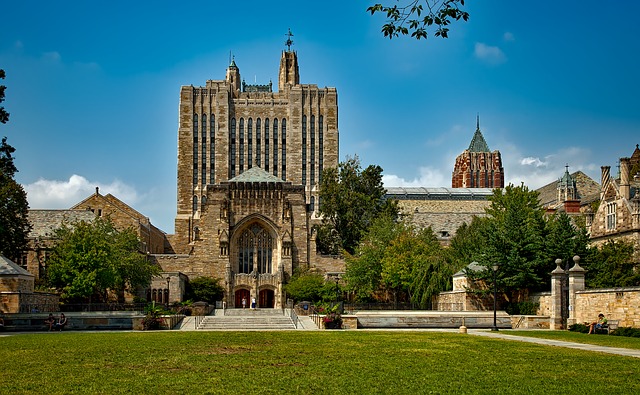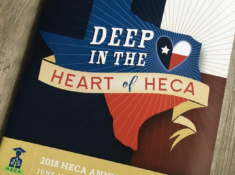
It’s been a little over a week since the breaking news of College Admissions Scandal-Gate 2019. In case you missed it, think bribery to the tune of tens of thousands of dollars, paying other people to take the SAT for a higher score, even falsifying sports records and photoshopping kids into team photos.
A few notable television celebrities, including Lori Laughlin of Full House and Felicity Huffman of Desperate Housewives fame, were arrested for their involvement in the college admissions cheating scam.
Of course, ever since the news hit the headlines, I’ve been asked to weigh in with my thoughts, especially working in the arena of college admissions consulting. I shared a few key takeaways on our Facebook page, but also thought I’d also write down a few points to bless the blog with as well.
College Admission Consultant Awareness
Before the story broke, there were lots of people unaware that college admissions consulting exists as its own profession. What? There are people who assist students with the college application process? Yep, you betcha.
College admissions consulting continues to grow as a field, in part, due to the woefully inadequate student-to-school-counselor ratios in schools. Very large caseloads mean, as one of my former students described it: “Sitting in the counselor’s office all lunch period all week long and not being able to meet with anyone one-on-one.” With that being said, any college admissions consultant worth their salt should also belong to professional organizations with credentialing requirements and ethical guidelines that must be adhered to.
If you are working with a college admissions consultant, you want to do your due diligence to make sure they have their professional ducks in a row. Check for membership to organizations such as the Individual Education Consultants Association (IECA) and the Higher Education Consultants Association (HECA). Ask about ethical guidelines before you begin seeking out advice from someone.
I made sure that I was up-to-date on the latest college admissions trends and informed about best practices in advising students before I began working with any clients. To be crystal clear, over here at Admissionisms, we do college admissions consulting the right way, the ethical way. No scandals necessary.
Although I had a wealth of personal experience to draw from and worked inside of higher education as a college professor, I absolutely made a point to seek out the professional knowledge and background necessary to truly help support the families I sought to work with.
I didn’t just wake up one day and decide to hang out a shingle saying “Open for Business.” I believe in providing real value. I invested time and energy into doing the work to earn the credentials.
I signed up and started taking coursework to earn my certificate in educational consulting. I paid dues toward joining the IECA. I attended yearly professional conferences. I have a set of ethical guidelines that I share with students and families AND expect any client to behave in an ethical fashion as well. This is a two-way street. And my professional ethics and reputation mean everything to me. No way would I jeopardize this for anyone.
Legal, Illegal, And Shades of Gray?
Of course, ponying up lump sums to the tune of $30K+ to “buy” your kid a seat in the incoming Freshman class of a highly selective university clearly falls under the scope of illegal. But what the scandal also did was shine a light on some “gray area” college admissions practices.
First, there’s legacy admissions. Not every college uses this practice, but for others, it is customary to reserve a portion of the incoming class for children whose parents also attended the institution. Could it be the case that some of these students would not be admitted if judged solely on the basis of their grades and SAT scores? Maybe. Is the use of legacy admissions illegal or unethical? No. Although many would cry foul, it is a major “hook” that allows serious advantages to some students over others.
What about making a major charitable donation? Just a week after the college admission scandal made the news, famed rapper-producer-entrepreneur Andre Young (better known as Dr. Dre) took to Instagram to congratulate his daughter on her acceptance to the University of Southern California “all on her own.” Except, one problem.
Several years prior, Dr. Dre had made a $70 million dollar donation and bears his name on an arts, technology, and innovation academy at the University of Southern California. To think that a hefty donation and having your name on a building didn’t help nudge his daughters application to the “acceptance” pile is short-sighted, at best.
Is making a mega donation illegal? Well, no. As Dr. Dre proudly proclaimed, “No jail time,” but this is yet another example of a legal, but gray area, when it comes to college admissions.
Everyday Shades Of Gray
A more common “shade of gray” for those of us who don’t qualify for legacy status or lack millions of dollars to make charitable donations is when parents essentially write college applications for their kids. Maybe you just shook your head in disapproval or gasped in surprise, but I’ve heard of this happening more often than you may think.
It may seem like an innocuous extension of other parent-ly duties, like scheduling doctors appointments or previewing homework assignments before they are turned in, but make no mistake: It is your students’ job to complete their college applications.
No one should be submitting college applications without the student’s knowledge. No one should be writing your kid’s application essay. That is very literal definition of plagiarism. No matter how well-intended.
If your student needs further support, they should absolutely have it, but we have to be very careful with crossing the fine line between “helping” and “doing the work for them.” This includes me as well – as a college admissions consultant.
After all, your student will soon be held accountable to college-level expectations, including time management, task prioritization, writing and analytical skills, and professionalism all on their own. Why not begin practicing these skills – with support – as part and parcel of the college application process?
College skill-building and success – via the college application process – is part of the magic that occurs when working with a skilled and experienced college admissions consultant. And your kid gets to take the benefits with them when they begin college.
No Substitute for Doing The Work
The inevitable part is that these students were bound to get found out… eventually. You can cheat or “gray area” your way through the front door, but will the student have the foundational skills necessary to stay in and stay afloat at an even higher level? Will they get passed over in favor of those who can legitimately demonstrate the skills? Will they cheat their way into an ethical violation once they get to college?
Some may argue that it doesn’t matter for these kids because of the allowances, privileges, and second chances afforded to those in close approximation to celebrity and wealth, but let’s take it home for a minute, what would operating in a “gray area” mean for YOUR kid?
As this scandal brings to forefront, in many ways, college admissions is not a fair level playing field for everyone who applies. It’s not an apples-to-apples comparison of GPA and SAT scores determining who gets in and who does not.
Even for a student without a single “hook” or special admissions factor, in doing things the “right” way, what can YOU focus on in the realm of YOUR control to help create the very best outcome when college application season finally rolls around?
 My First HECA Conference – But Not My Last
My First HECA Conference – But Not My Last Everyone’s Not A Writer. But Everyone Has A Story.
Everyone’s Not A Writer. But Everyone Has A Story. Florida Bright Futures vs Everybody: Comparing In-State and Out-of-State College Options
Florida Bright Futures vs Everybody: Comparing In-State and Out-of-State College Options My Eternally Soft Spot for Graduate School Seekers
My Eternally Soft Spot for Graduate School Seekers